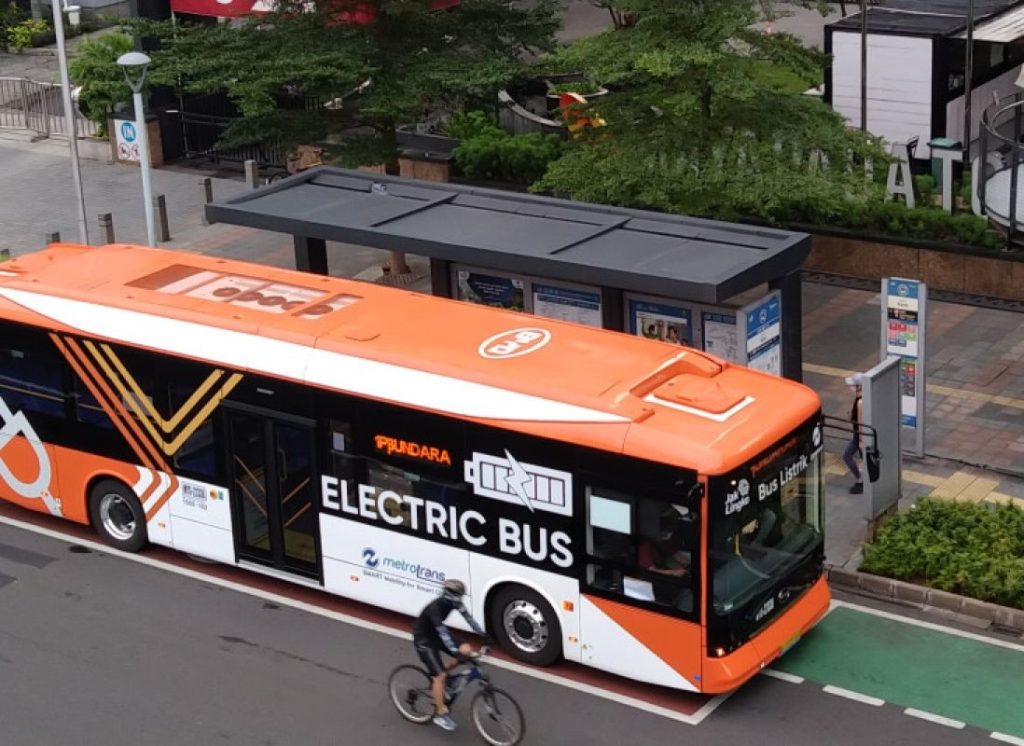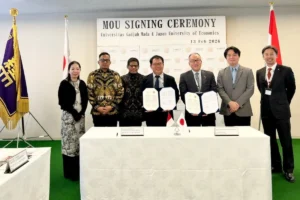Indonesia Accelerates Electric Bus Deployment to Combat Air Pollution

Jakarta, The Gulf Observer: The Indonesian government is intensifying its efforts to promote the use of green energy resources and sustainable funding to enhance the use of electric public transportation. This initiative is aimed at reducing air pollution and encouraging the adoption of cleaner fuels, a senior official confirmed on Friday.
Deputy III for Infrastructure and Transportation Coordination of the Coordinating Ministry for Maritime Affairs and Investment, Rachmat Kaimuddin, announced that Indonesia is targeting the introduction of cleaner biodiesel by the fourth quarter of 2024 and cleaner gasoline by the first quarter of 2025. “We aim to have cleaner biodiesel by the fourth quarter of 2024 and cleaner gasoline by the first quarter of 2025,” he noted in a statement from his office.
Additionally, Kaimuddin highlighted the expansion of the TransJakarta bus network, with a significant increase in the use of electric vehicle (EV) buses. “TransJakarta has already deployed 100 single EV buses and will add another 200 by the end of 2024. We are committed to purchasing 100 percent electric vehicles for new single buses moving forward,” he stated during a plenary session at the Indonesia International Sustainability Forum (ISF) 2024.
Further efforts include exploring the possibility of expanding low emission zones (LEZ) in key urban areas. Kaimuddin emphasized the need for comprehensive measures to curb pollution from various sources, including Steam Power Plants (PLTUs), motor vehicles, and open burning practices. “PLTU emissions, particularly in urban areas such as Jakarta, contribute significantly to air pollution. This, combined with emissions from motor vehicles, open burning, and substandard fuel quality, necessitates coordinated action,” he remarked.
The Deputy Minister also drew attention to the inefficiencies in implementing air pollution reduction solutions, noting the importance of coordinated research and cost-effective measures. “We need to increase research and studies to validate the best cost-effective solutions to reduce air pollution due to PLTU and vehicle exhaust,” he stressed, acknowledging that Indonesia’s current emission standards for PLTU facilities are behind those of countries such as China, India, and the United States.
In response to these challenges, the government is conducting evaluations to improve PLTU emissions standards. Furthermore, Law Number 18 of 2018 has been enacted to prohibit open burning, though Kaimuddin underscored the need for more robust enforcement and education to ensure compliance.
In addition to transportation and energy reforms, Indonesia is also advancing its waste-to-energy conversion program, designed to mitigate open burning at waste processing facilities. Two projects have already been completed, with ten more programs in development.
“We must also improve our capacity to measure and monitor air quality,” Kaimuddin added, stressing the importance of installing more sensors and continuously updating data to detect pollution sources and assess the impact of pollution control efforts.
As Indonesia accelerates its green energy transition, these comprehensive initiatives reflect the government’s commitment to improving air quality and fostering a sustainable future.


